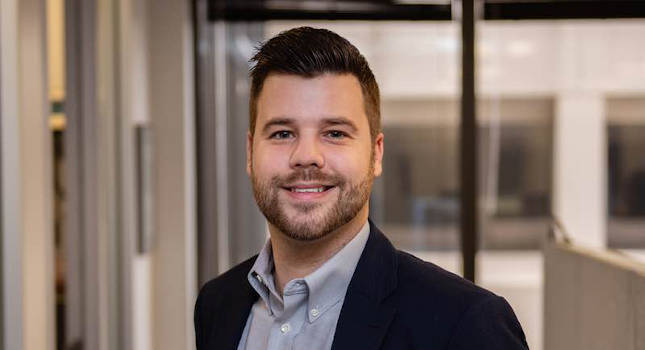How companies are winning top engineering candidates in a post-pandemic world
Hiring and retention of engineering and technology-minded talent: Industrial automation companies think creatively about attracting skilled workers. Resiliency matters during a pandemic. See related advice.
Nearly one year ago, industrial automation leaders shared their advice as the world looked with uncertainty about the future landscape of career and employment. Companies were starting to send full workforces’ home in an attempt to reduce workplace health risks. Strategies began forming on how to balance routine and success amid an unclear future. Many strategies were being developed on the fly, as no one had dealt with such a wide-reaching pandemic.
Surprising to many, there was a collective sense of optimism. A common thread through conversations seemed to be a positive outlook regarding plans to keep their teams safe and to keep people working and succeeding. Signs were there early on and remain: Engineering leaders are resilient.
Virtual control engineering principles applied
As current CEO of the Control System Integrators Association (CSIA), Jose Rivera is in tune with the country’s top system integration firms across all major industries. Early in 2020, Rivera saw signs engineering firms were doing what they do best: Adapting to new circumstances.
“The good thing about an industry packed full of engineers, you’ve got a lot of folks that were prepared as best they could be and had systems in place to battle through this. Whether that is remote work setup, company e-meetings, applying virtual control engineering principles, etc. Of course, there will be lots of adapting on the fly, but engineers are good at that too,” Rivera said.
In 2021, Rivera said the message extends well beyond making it through tough times, to growth initiatives, hiring and employee retention.
“We’ve gone from a time where remote work used to be unique; now it’s nearly universal. This may create even more innovation as it could shape how companies attract employees in the future. Remote work potential used to be a major benefit and perhaps a recruiting tool, companies may now need to look for new ways to separate themselves from the rest,” Rivera said.
Secure remote network connections
Walker Reynolds, CEO at Intellic Integration, has built a career on products and solutions based under the remote model through digitalization. When asked how his firm has been affected with business and recruiting talent for his team, his answer was surprising.
“When people ask me how we’ve been affected, I tell them honestly, not a lot,” Reynolds said. “We have six offices around the country which we had to close down temporarily, we followed all of the pandemic guidelines and we kept on moving. We leveraged technologies [such as secure virtual private network and other network technologies] to work with our clients and gave our employees the freedom to choose if they are able to come to office. We are fortunate as our infrastructure was already set up to handle this effectively. I think this was a big eye opener, for some, that may have been a bit behind.”
It remains to be seen how the industry continues to adapt as the economy comes roaring back and hiring keeps increasing.
Flexibility, speed, investments
Gary Miller, president of Miller Resource Group, knows the ebbs and flows of hiring top candidates for engineering firms. Asked how he’s seen companies form winning strategies amid the world’s uncertainty, he shared an analogy: “Small to mid-size houses in the suburbs are selling above asking price in 24 hours. It’s a sellers’ market. You can complain about it if you’re a buyer, or adjust. The same holds true in hiring. Good candidates are in demand now. They have choices. Companies that are flexible, quick, and willing to invest extra, are landing the good candidates. You can complain or adjust.”
A big part of hiring and creating an attractive work environment is through a company’s brand, or culture. Company culture has always been at the center of discussion for most human-resource (HR) professionals and goes hand-in-hand with attracting and hiring top candidates. As we continue to reinvent the definition of the word, with water cooler discussions fading and in-person camaraderie minimized, the question becomes, “How can we still make employees feel special and want to come work for your team?” Miller noticed trends in how hiring authorities view candidates during an interview process, and, perhaps more importantly, after a candidate accepts the job.
Investing in employees’ development
“Biases developed 100 years ago during the Great Depression around employees being grateful to employers for giving them a job continues to shift. Miller Resource Group is grateful that our employees have chosen to invest their talents in our mission, and we’re happy to invest in their development toward a fulfilling career that blends perfectly with their life outside of work. We’re seeing this as a winning strategy for our clients as well,” Miller said.
An interesting concept, Miller said, is a mindset or paradigm shift from leaders who have recognized current and future hiring challenges will not be the same as before. As the landscape keeps changing, more companies seem likely to adapt to flexible remote operations and greater employee investments to overcome future unpredictability. The ability to think differently and be creative always wins.
Jeff Briggs is industrial automation recruiter, Miller Resource Group. Edited by Mark T. Hoske, content manager, Control Engineering, CFE Media and Technology, mhoske@cfemedia.com.
Do you have experience and expertise with the topics mentioned in this content? You should consider contributing to our CFE Media editorial team and getting the recognition you and your company deserve. Click here to start this process.



